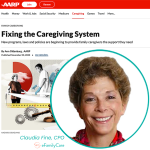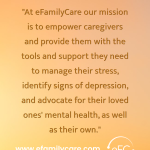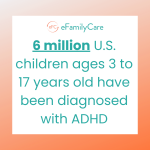
Understanding Alzheimer’s
Alzheimer’s disease is a type of dementia that causes problems with memory, thinking, and behavior. Alzheimer’s is the most common type of dementia affecting 3 million people and accounting for 60 to 80% of all dementias. Symptoms usually develop slowly and get worse over time. becoming severe enough to interfere with daily tasks and ultimately causing a break down in physical and ultimately bodily functioning. There is no one test to determine if someone has dementia. A dementia diagnosis can be made with some certainty based on a careful medical history, a physical examination, laboratory tests, and the characteristic changes in thinking, day-to-day function, and behavior associated with each type.
What Can Be Done?
Because of its insidious presentation and the fact that it is the most common form of dementia, the elderly and their caregivers are more terrified of this illness than any other. Unfortunately, fear can contribute to the denial of symptoms and avoidance in implementing plans to prepare for the care of aging loves one. Although there is no cure for Alzheimer’s Disease, there are important steps that can be taken to improve the safety, wellness, and quality of life for the Alzheimer’s patient and the Family Caregiver. The first step is to take signs and symptoms seriously. There are many reasons for memory loss and changes in functioning. Just like the rest of our bodies, our brains age as well, possibly leading to mild problems remembering certain things and difficulty learning new tasks. Serious memory loss, confusion and a decline inabilities to do tasks that were once routine, are serious symptoms. As we discussed above, dementia is a likely factor. The first and most important step to take is to get a thorough neuropsychological evaluation in addition to a diagnosis from a primary physician.
Be Prepared For This Challenging Journey
Given the prevalence of dementia and the fact that the disease will eventually impact motor skills and cognitive abilities, it just makes sense to plan for a time when aging loves ones is no longer able to manage basic activities of daily living and make sound decisions about their health care and finances. The second and equally important step is to ensure that legal documents are in place that allows someone, often a Family Caregiver, to make healthcare decisions if the aging loves one no longer has the capacity to make those decisions. These documents may be called by different names in different states but are commonly referred to as Health Care Proxys. The third step is to ensure that legal documents are in place that allows another person to manage aging loves one’s finances.
Invest In Resources That Will Support You
The fourth step is to recognize that you cannot care for aging loves ones with Alzheimer’s Disease all on your own. It is critical to invest in resources to support you and your aging loves one throughout this journey. Often, we save for a rainy day. Caring for an Alzheimer’s victim in equivalent to a hurricane! Consider utilizing a professional home care as needed or a personal expert adviser. It may also mean building a network of other family and friends who can step up as needed to support you and your loved one. With a strong support network, your family member with Alzheimer’s Disease will be at their best.
Avoid Caregiver Burnout
Caregivers, particularly ones of family members, tend to experience high rates of burnout. Many caregivers have a hard time asking for support or taking time to themselves. While it may seem counterintuitive, it is vital that you take time to be alone and relieve stress while taking on this difficult job. This will ensure you are able to be your best, healthiest self while caring for your loved one. Do not feel guilty about taking you-time — this is vital to sustaining yourself as a caregiver.
Learn More About eFamilyCare
eFamilyCare is a caregiver support tool aimed at helping caregivers throughout their care journey. We typically work with family members who are caring for a loved one suffering from Alzheimer’s Disease. Contact us today to learn more about our caregiver services.







